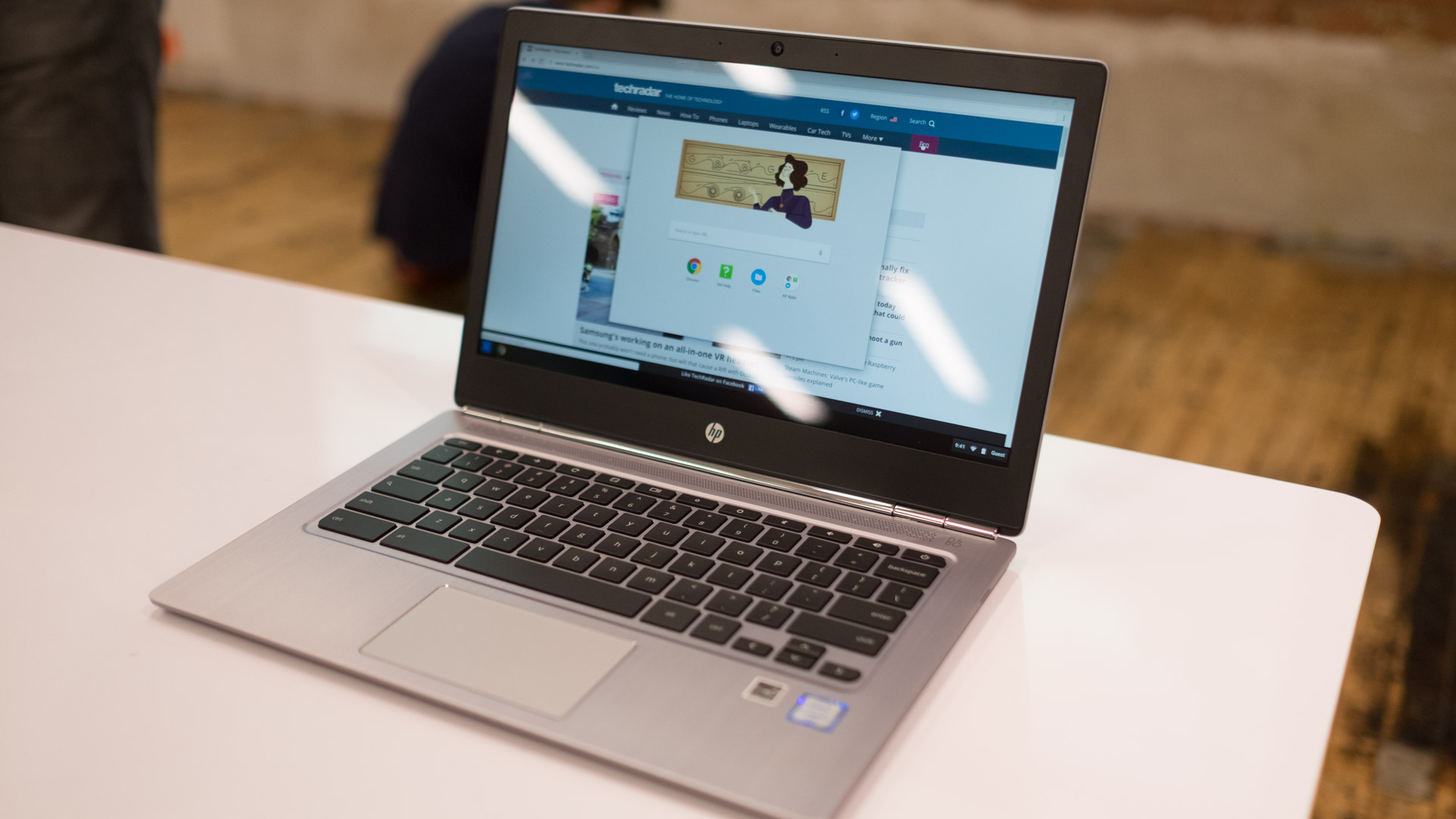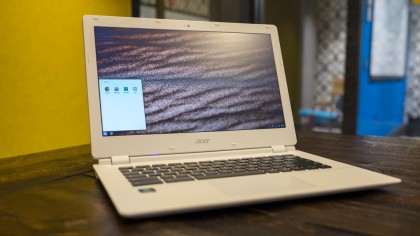Could this be why Chromebooks are better looking than Windows laptops?
Conspiracy theory ahoy!

Beauty, they say, lies in the eye of the beholder. Yesterday, HP unveiled a new Chromebook and from the looks of it (and according to our very own hands-on), it is a stunner*.
The Chromebook, which stems from the collaboration between HP and Google, looks like a Chromebook Pixel but is far cheaper. That's not to say that it feels cheap. As techradar's Joe Osborne puts it, it is "wrapped almost entirely in anodized, brushed aluminum" and "oozes style from every angle".
Add some quality components (4GB of RAM, Skylake-based Pentium and a full HD display) and you seriously wonder how HP managed to do produce something so posh and then slap a $499 price tag on it.
Yes, that's the selling price and it looks like one that's far more expensive, especially compared to its Windows counterparts. Sure, Microsoft charges for its operating system - which accounts for some of the difference - whereas Google gives Chrome OS for free.
But that doesn't explain why Chromebooks suddenly started to look much better than their Windows rivals at the same price, at least when it comes to recommended retail prices (obviously sale and promotional prices are likely to be different).
Acer, for example, unveiled another stunning laptop based on Google's OS, the Chromebook 14. It looks a lot like Apple's iconic MacBook Air but, at $299, costs a fraction of the price while providing with a feature set comparable to its WIndows rivals.

Where are beautiful affordable Windows laptops?
That is a worrying trend for Microsoft. Early Chromebooks looked more like toys whereas the newer ones have a far more premium feel, gradually moving upstream, trying to position themselves as affordable options to Apple's posh MacBook or MacBook Air range.
Sign up to the TechRadar Pro newsletter to get all the top news, opinion, features and guidance your business needs to succeed!
Laptop vendors now pitch their entry-level Windows-based laptops at a lower entry point compared to Chromebooks, perhaps saying that the latter are, well, not as bargain basement than the former.
Conspiracy theorists will say that this is exactly what vendors are pushing for; more competition will give them more bargaining power against Microsoft to lower the price of Windows licenses.
In addition, Chromebooks usually require low storage components (i.e. eMMC) rather than more expensive SSD or HDD, which again lowers the BOM (bill of materials).
ChromeOS also works better on entry level processors and systems with limited memory which has an impact on the all-important BOM; all this translates into much higher margins for the likes of Dell.
And moving further up, with more powerful CPU, better display and more memory further increases those margins. Which is exactly what the HP Chromebook 14 with 16GB of RAM and a QHD+ display aims to achieve with an eye on the enterprise market.
So we could well be witnessing a concerted effort by some of Microsoft closest partners to widen the playground. It would be a powerful statement at a time where Microsoft is targeting the high end of the market with the Surface Pro and Surface Book.
* HP's stunner was unimaginatively called the Chromebook 13, not surprisingly, to add to the confusion, there are other Chromebook 13 already on the market.

Désiré has been musing and writing about technology during a career spanning four decades. He dabbled in website builders and web hosting when DHTML and frames were in vogue and started narrating about the impact of technology on society just before the start of the Y2K hysteria at the turn of the last millennium.